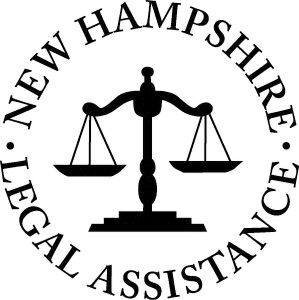Should I Report Sexual Harassment in Housing?
Thanks to the #metoo movement and its media coverage, people are increasingly aware of harassment in the workplace and what kind of acts can create a hostile work environment. However, sexual harassment of tenants in housing has received less attention. This kind of harassment can leave victims feeling helpless, fearing that reporting the harassment will jeopardize their housing.
Sexual harassment in housing is illegal under the Fair Housing Act and organizations like the Fair Housing Project at New Hampshire Legal Assistance are available to answer questions and assist victims. Because sexual harassment in housing disproportionately affects low-income women and women of color, organizations like NHLA play a critical role in holding perpetrators accountable and ensure safe living conditions for all.
What is sexual harassment in housing?
Sexual harassment in housing is a form of sex discrimination. There are two types of sexual harassment:
Quid pro quo sexual harassment
Hostile environment sexual harassment
Quid pro quo harassment is when a housing provider makes an unwelcome request to engage in sexual conduct to a tenant in return for getting or keeping housing. It can also apply to unwelcome requests for sexual acts to get housing-related services. Some examples from HUD include:
A landlord tells an applicant he won’t rent her an apartment unless she has sex with him.
A property manager evicts a tenant after she refuses to perform sexual acts.
A maintenance man refuses to make repairs unless a tenant gives him nude photos of herself.
A housing provider or landlord creates a hostile environment when he subjects a person to severe or constant unwelcome sexual conduct that interferes with that person’s housing. This “hostile environment” can be present in both property sales and rentals. Some examples from HUD include:
A landlord engages in severe or constant unwelcome touching, kissing, or groping.
A property manager makes severe or pervasive unwelcome, lewd comments about a tenant’s body.
A maintenance man sends a tenant unwelcome, sexually suggestive texts and enters her apartment without invitation or permission.
Fighting sexual harassment in housing
In recent years, there have been federal efforts to raise awareness of harassment in housing and to do more to combat it. In 2016, Senator Jeanne Shaheen introduced legislation to combat sexual harassment in rental housing, saying at the time that she hoped the bill would encourage more women to come forward.
“Most women understand the enormous challenge our country faces with sexual harassment in the workplace. It’s critical that we recognize these crimes are also happening in rental housing and they pose a real threat to tenants’ safety,” said Shaheen. “Women across the country are suffering in silence simply because they are poor. Most of these women lack the resources to move or find alternate housing, and they don’t know what’s illegal and who to turn to for help, so they remain nearly invisible to the housing and justice systems. It’s unacceptable that women are forced to decide between giving in to unwanted sexual advances or becoming homeless.”
In 2018, the US Department of Justice created a new Sexual Harassment in Housing Initiative and opened a record number of sexual harassment in housing investigations. It also held 20 roundtable discussions about sexual harassment in housing with federal prosecutors throughout the country, to provide collaboration opportunities for community partners and law enforcement.
Should I Report Sexual Harassment?
Sexual harassment at home can be intimidating, especially if you fear losing your home or other kinds of retribution. It is more likely that victims of sexual harassment in housing are low-income or the head of a single parent household with children, making them particularly vulnerable.
While it may seem easier to ignore unwanted advances, sexual harassment in housing is strongly correlated with criminal sexual assault. According to a 2005 study cited by Senator Shaheen, 79% of women who had been sexual assaulted by a landlord reported that prior to the assault, the landlord first sexually harassed the tenant by doing one of the following: sexually propositioning the tenant, stalking the tenant, or initiating unwanted sexual contact with the tenant.
If you have been a victim of sexual harassment in housing, there are organizations that can help you get the protections and relief you deserve. Contact the NHLA Fair Housing Project to learn more and discuss your rights.
The work of NHLA’s Fair Housing Project is supported by funding under grants with the U.S. Department of Housing and Urban Development. NHLA is solely responsible for the accuracy of the statements and interpretations contained herein. Such interpretations do not necessarily reflect the views of the Federal Government.

